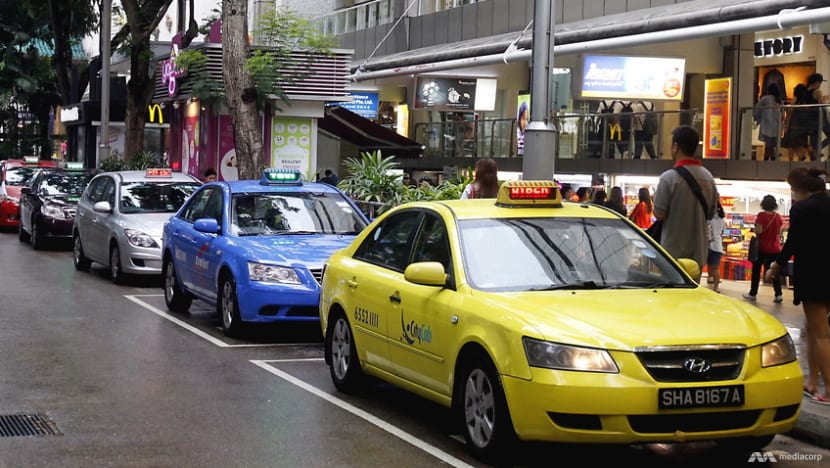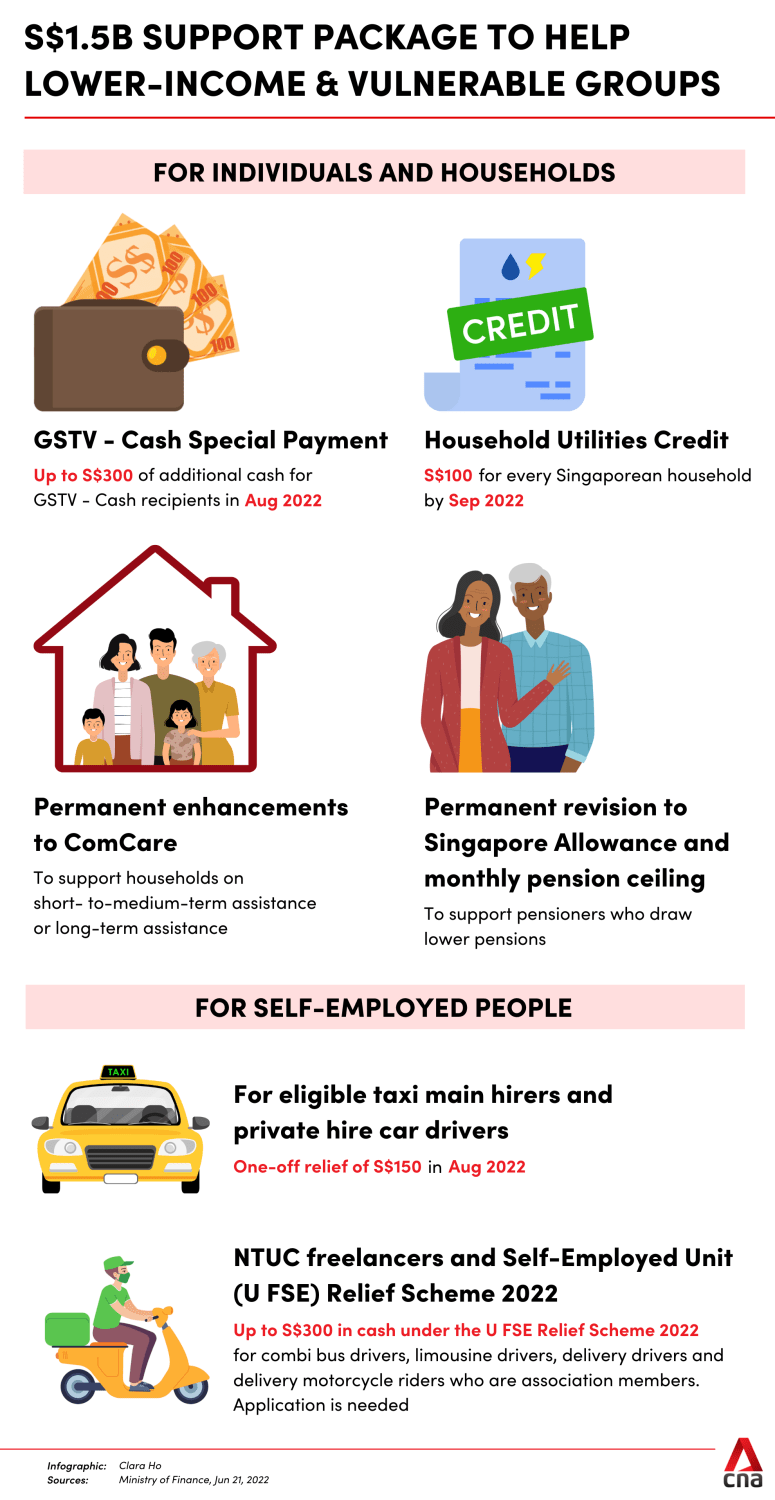Help for some self-employed drivers, chicken slaughterhouses as part of S$1.5 billion support package

Taxis in Singapore. (File photo: TODAY)
SINGAPORE: Eligible taxi main hirers and private hire car drivers will get a one-off relief of S$150 as part of a S$1.5 billion support package, Senior Minister of State for Finance and Transport Chee Hong Tat announced on Tuesday (Jun 21).
They will receive the relief in August this year.
Private hire car drivers need to have completed an average of 200 trips per month from Mar 1 to May 31 this year to qualify, the Ministry of Finance (MOF) said in a separate media statement.
Additionally, the Government will provide one month of foreign worker levy waiver for June this year for Singapore's 11 chicken slaughterhouses to cushion the impact of Malaysia's export ban.
As part of support measures for self-employed people, combi bus drivers, limousine drivers and delivery drivers and motorcycle riders will get up to S$300 in cash.
Drivers of combi buses and limousines must be members of the National Private Hire Vehicles Association, while delivery drivers and motorcycle riders must be part of the National Delivery Champions Association to qualify for the relief.
They will have to apply under the NTUC Freelancers and Self-Employed Unit Relief Scheme and more details will be released by August this year.
“Fuel price increases have increased costs for many self-employed persons who depend on their vehicles for livelihoods,” MOF said.
Related:
MOF added that the immediate and targeted relief is meant to help especially the lower-income and more vulnerable groups.
Speaking at a press conference, Mr Chee noted that pump prices have gone up 30 to 40 per cent in the past six months. He added that the Government relief comes on top of other help drivers may be getting.
He noted that taxi and private hire car operators have introduced temporary fare adjustments to supplement the incomes of drivers in the point-to-point sector.
Many operators offered further support, such as rental rebates and discounted fuel, he said.
Also speaking at the press conference, Finance Minister Lawrence Wong said the Government anticipated the rise in prices at the beginning of the year and responded with a comprehensive set of measures during the Budget in February and brought forward Budget measures.
Since then, however, the global growth and inflation environment have proved to be more challenging, he noted.
“The Ukraine war has put tremendous stressors on global supply chains and protectionist measures by countries has compounded supply chain disruptions,” said Mr Wong, who is also Deputy Prime Minister.
Energy prices are likely to remain elevated, affecting petrol, fuel and electricity prices here, Mr Wong noted.
"Where fuel prices are concerned, in fact, we are trying to accelerate our shift towards cleaner vehicles, more energy efficient vehicles," he said.
In the meantime, the Government is helping selected groups, especially self-employed people who rely on their vehicles for their livelihoods, he said.
HELPING CHICKEN SLAUGHTERHOUSES
Given that Malaysia's export ban on live chicken has cut off the livelihoods of chicken slaughterhouses, they will receive one month of foreign worker levy waiver.
This will help preserve industry capabilities amid the export ban, MOF said.
Elaborating on the move, Senior Minister of State for Sustainability and the Environment Koh Poh Koon said most of the chicken slaughterhouses have had to put their employees on leave, given that the main activity there is to slaughter live chickens.
While many Singaporeans are concerned about the immediate issues of rising prices and the cost of living, the challenges Singapore faces are not just about inflation, DPM Wong said.
"They are also about adapting to major structural changes in our operating environment," he said.
He cited factors such as rising temperatures, climate change, increased geopolitical contestation and tensions.
"We have to fundamentally restructure and transform ourselves for this new world, a world which is likely to be more uncertain, volatile and even more dangerous than before," he said.

















